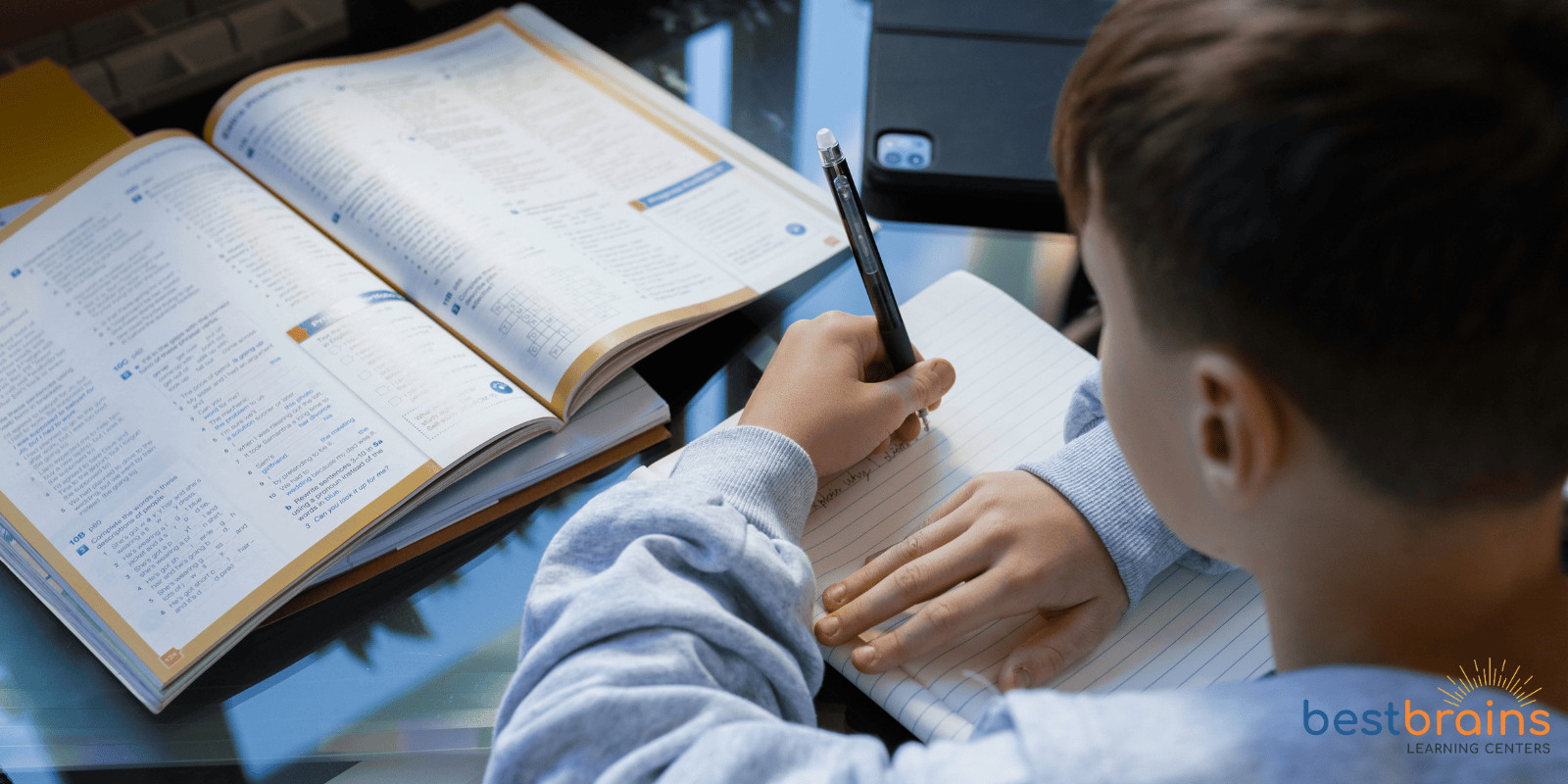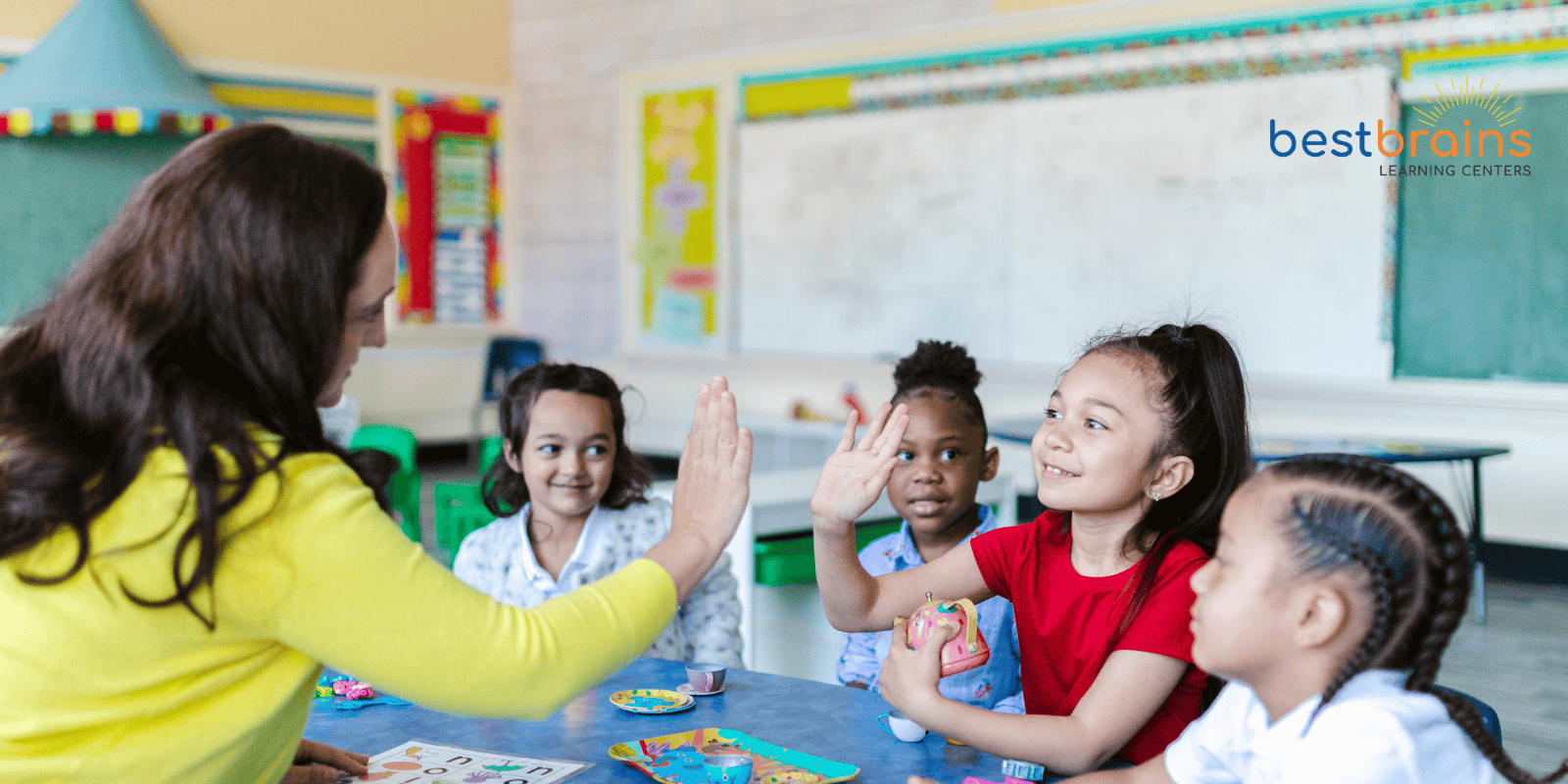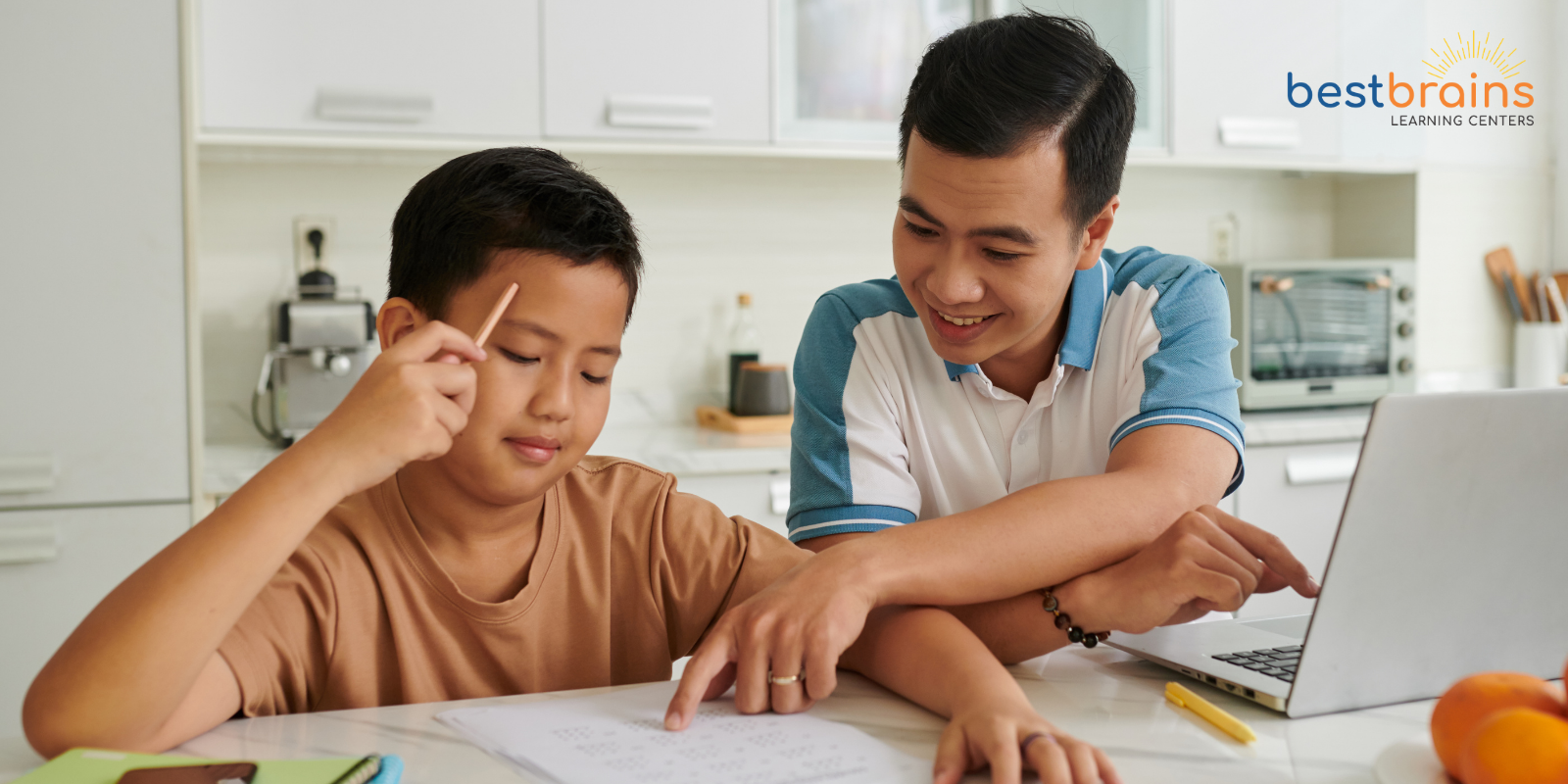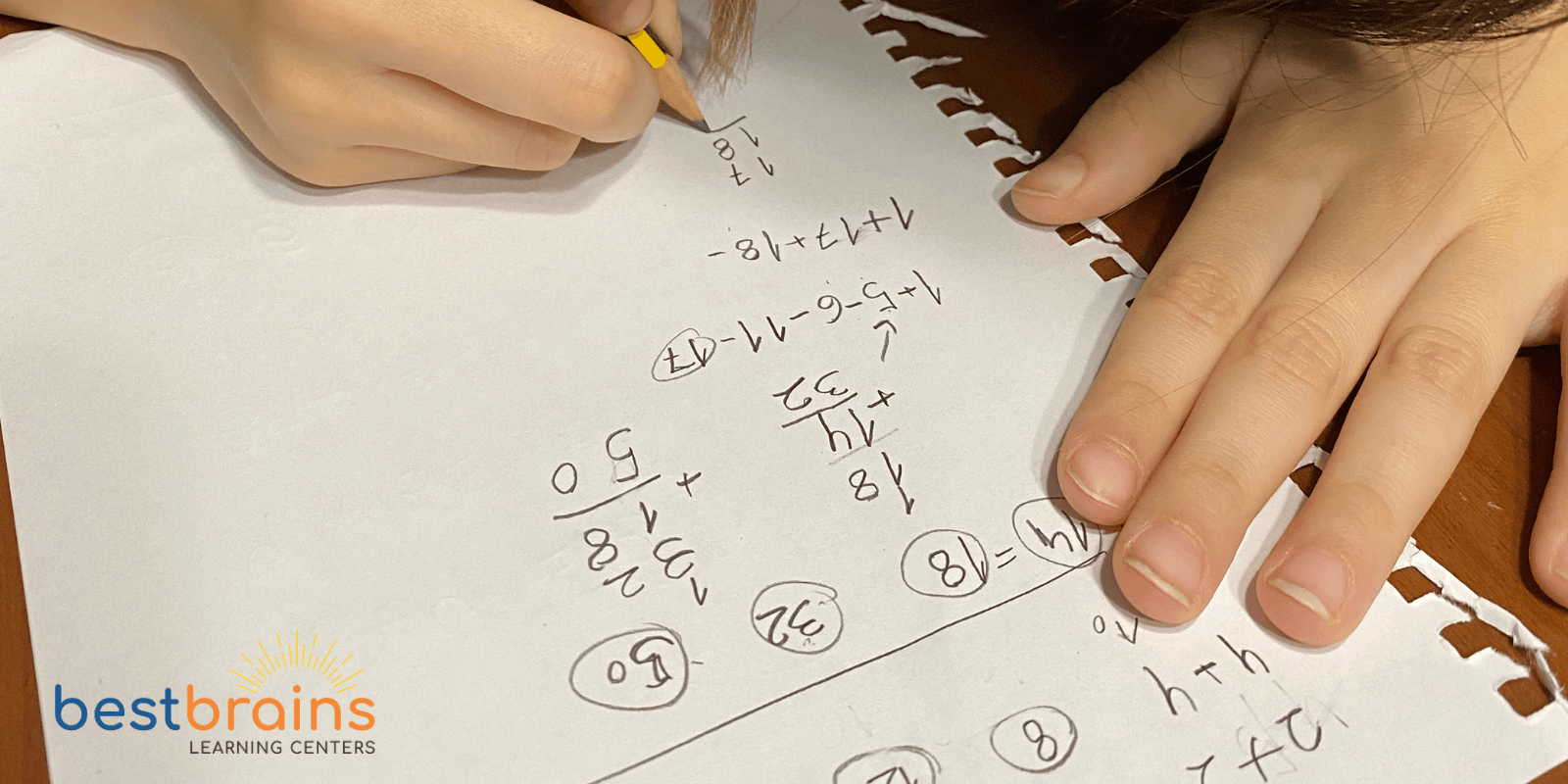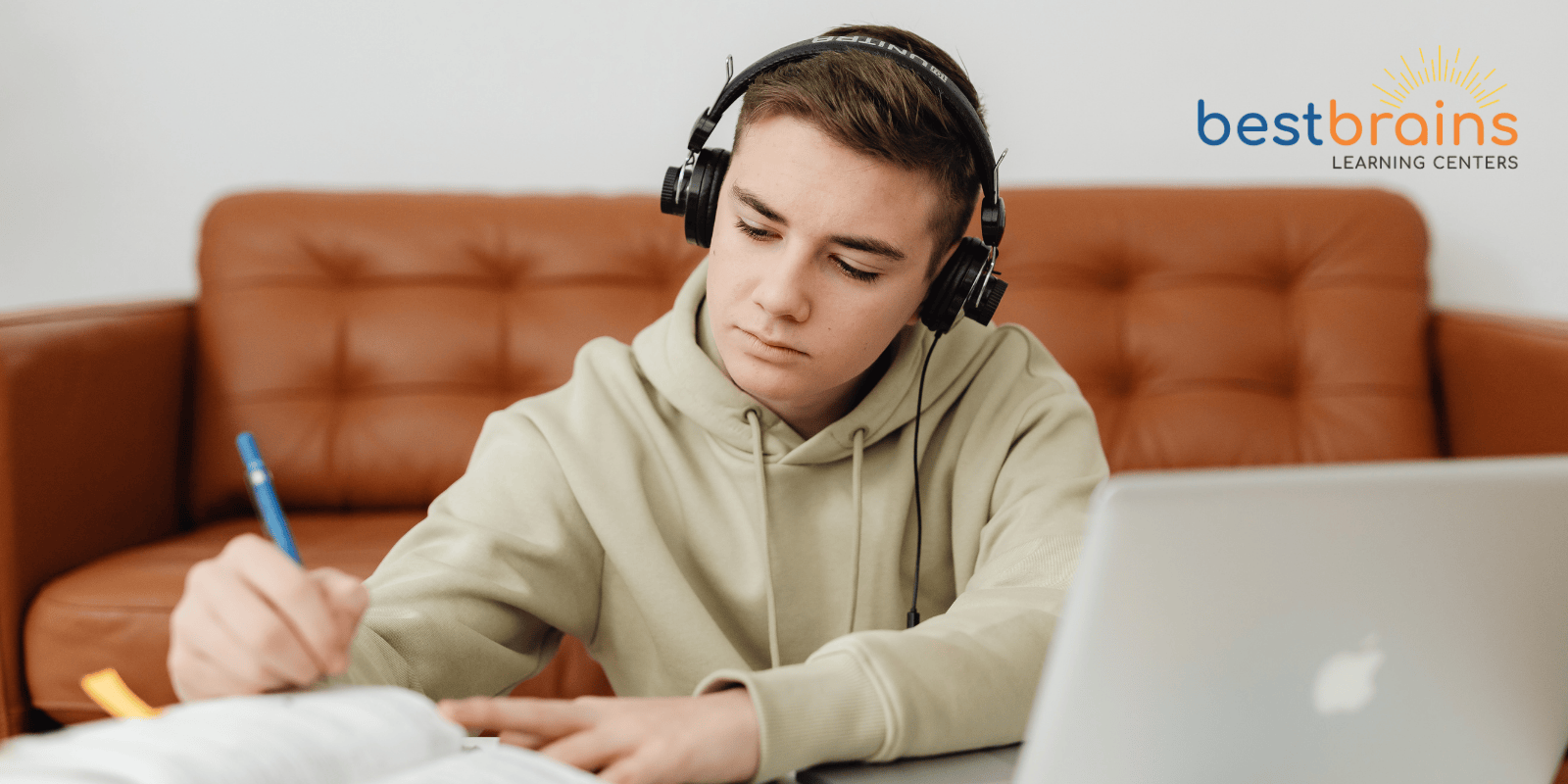Mechanicsburg
How Our Booklet-Based Curriculum Supports Focus and Mastery
📘 How Our Booklet-Based Curriculum Supports Focus and Mastery
In today’s tech-heavy world, most children are surrounded by screens from morning to night—whether it’s in school, at home, or during downtime. And while technology has its place, not all screen time is created equal—especially when it comes to learning.
At Best Brains Mechanicsburg, we intentionally take a different approach. Our curriculum is 100% booklet-based, meaning students work with paper and pencil—not tablets or computers.
Why? Because it works.
Here’s how this unique format helps students focus better, retain more, and build long-lasting academic skills.
🧠 1. Focus Without Distractions
Research shows that digital learning environments—even educational ones—can lead to more off-task behavior and reduced attention spans. Pop-ups, hyperlinks, and split screens can all make it harder for students to focus on one task at a time.
Our paper-based booklets remove digital distractions so students can concentrate fully on the material in front of them. No app-switching, no passive clicking—just focused, active learning.
✍️ 2. Reinforces Handwriting and Fine Motor Skills
Typing may be fast, but handwriting supports deeper learning. Studies show that writing by hand helps improve:
• Memory retention
• Comprehension
• Conceptual understanding
With our booklet system, students practice proper handwriting and develop the fine motor skills critical for academic tasks like note-taking, spelling, and organizing their thoughts.
🎯 3. Encourages Mastery Through Practice
Our curriculum is designed to build incrementally, reinforcing concepts over time through:
• Step-by-step instruction
• Skill-specific exercises
• Weekly repetition with increasing complexity
This mastery-based approach helps students feel successful as they complete each booklet and move on to the next. It also helps prevent gaps in understanding, which are common with faster-paced or screen-dependent programs.
✅ 4. Boosts Independence and Confidence
Because our materials are consistent and predictable in structure, students quickly learn how to work through them with growing independence. They know where to start, how to follow directions, and how to track their own progress.
This builds not only academic skills, but also:
• Self-motivation
• Accountability
• Confidence in their ability to succeed
🧑🏫 5. Designed for Teacher-Led Support
Unlike screen-based platforms that rely on passive engagement, our program is taught by certified teachers who guide students through each booklet. This allows for:
• Immediate feedback
• Clarification of confusing concepts
• Encouragement and support every step of the way
The result? A more connected, human learning experience—just the way kids need it.
Ready to See the Best Brains Difference?
Our booklet-based curriculum is one of the key reasons Best Brains students make such meaningful progress. Whether your child needs support or enrichment, this method gives them the focus, structure, and confidence to excel.
📞 Call today to schedule a free diagnostic test and see it in action!
📍 Best Brains Mechanicsburg – Proudly serving families in the Cumberland Valley School District and beyond.
📚 Sources & Further Reading
1. Mueller, P. A., & Oppenheimer, D. M. (2014). The Pen Is Mightier Than the Keyboard: Advantages of Longhand Over Laptop Note Taking. Psychological Science, 25(6), 1159–1168. https://doi.org/10.1177/0956797614524581
2. Christakis, D. A. (2018). The Challenges of Defining and Studying “Digital Addiction” in Children. Pediatrics, 143(1), e20183652. https://doi.org/10.1542/peds.2018-3652
3. Fischer, K. W., & Immordino-Yang, M. H. (2007). The neuroscience of learning: Principles and applications for educators. Mind, Brain, and Education, 1(1), 3–10. https://doi.org/10.1111/j.1751-228X.2007.00003.x
4. Pashler, H., Rohrer, D., Cepeda, N. J., & Carpenter, S. K. (2007). Enhancing learning and retarding forgetting: Choices and consequences. Psychonomic Bulletin & Review, 14(2), 187–193. https://doi.org/10.3758/BF03194050
5. Baranek, G. T. (2002). Efficacy of sensory and motor interventions for children with autism. Journal of Autism and Developmental Disorders, 32(5), 397–422. https://doi.org/10.1023/A:1020541906063
